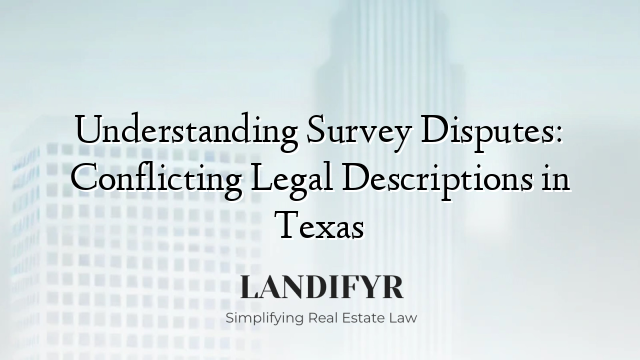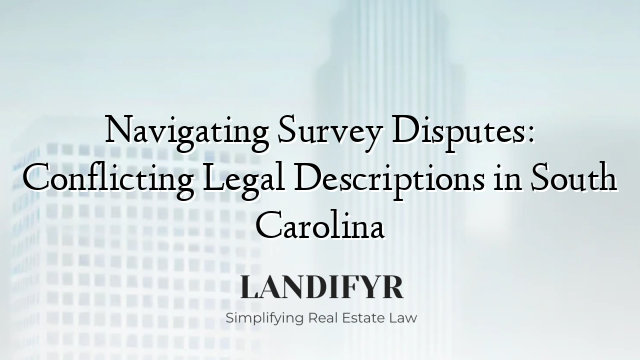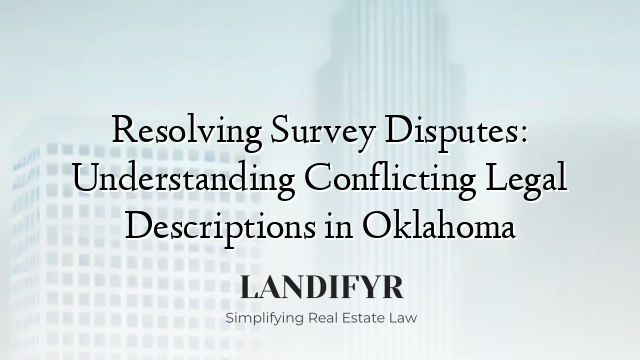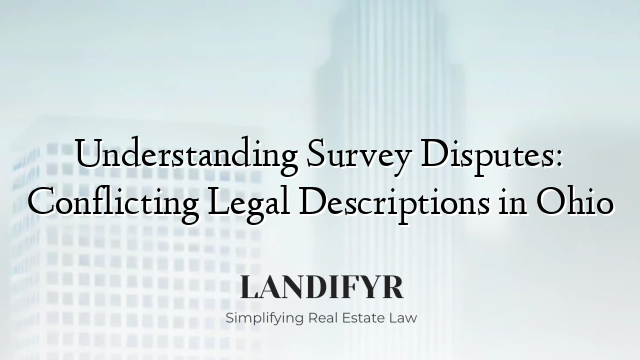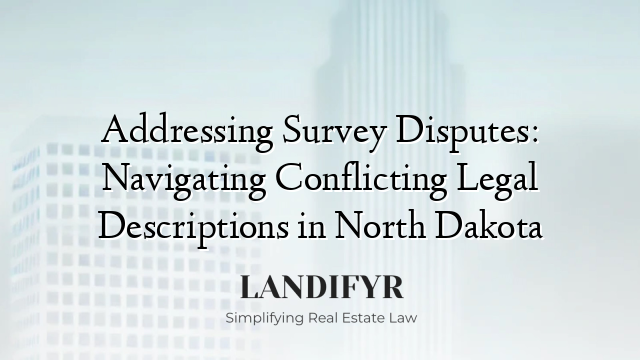Understanding Survey Disputes: Conflicting Legal Descriptions in Texas
Introduction to Survey Disputes in Texas Survey disputes are increasingly becoming a focal point of contention within the realm of Texas real estate, marking a significant issue for property owners, professionals, and legal experts alike. A survey dispute typically arises when there are conflicting legal descriptions concerning a parcel of land. These discrepancies can stem … Read more
